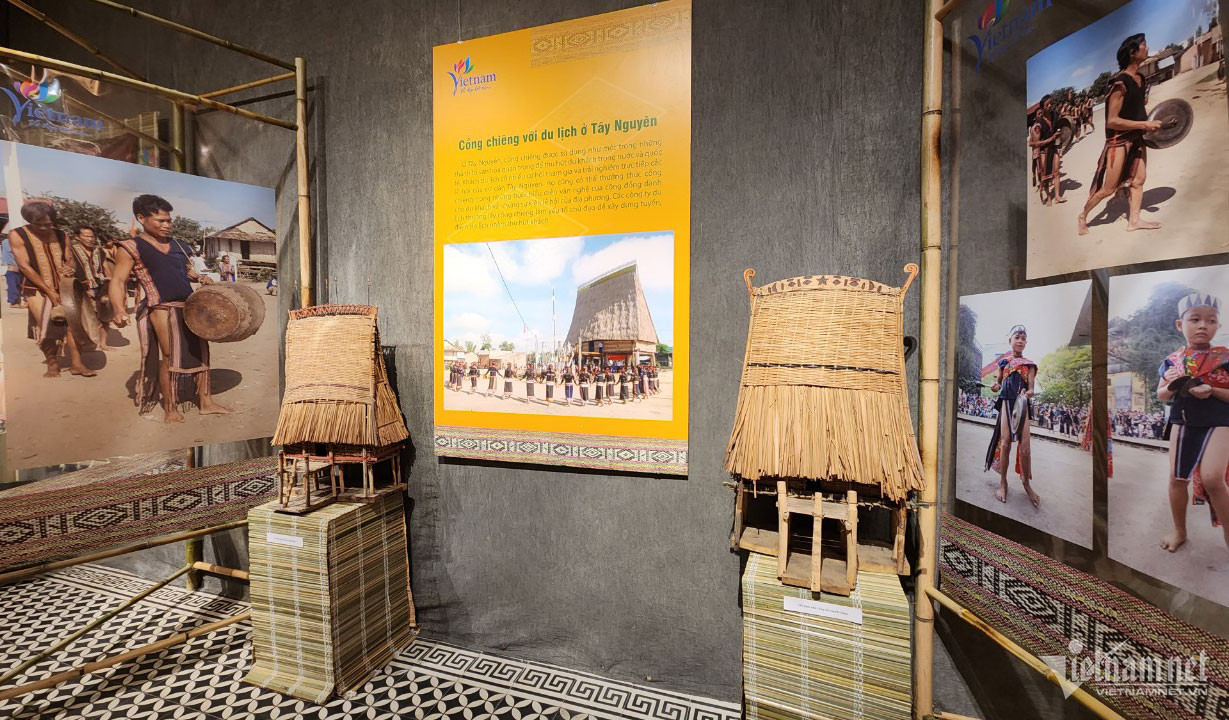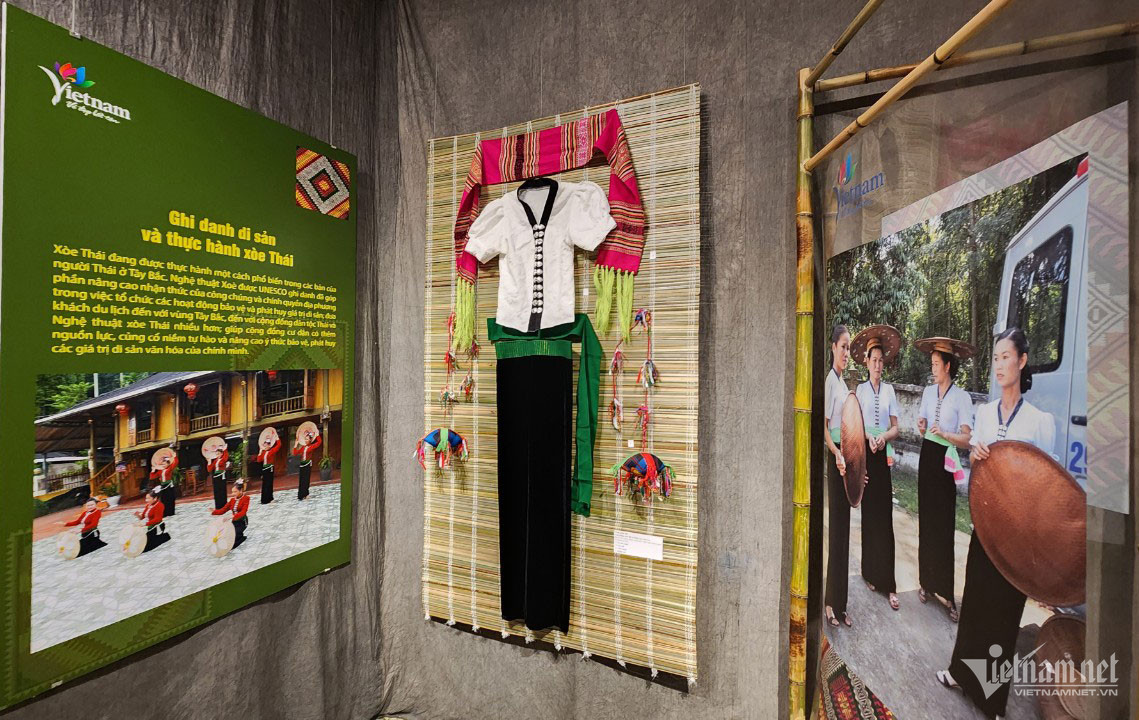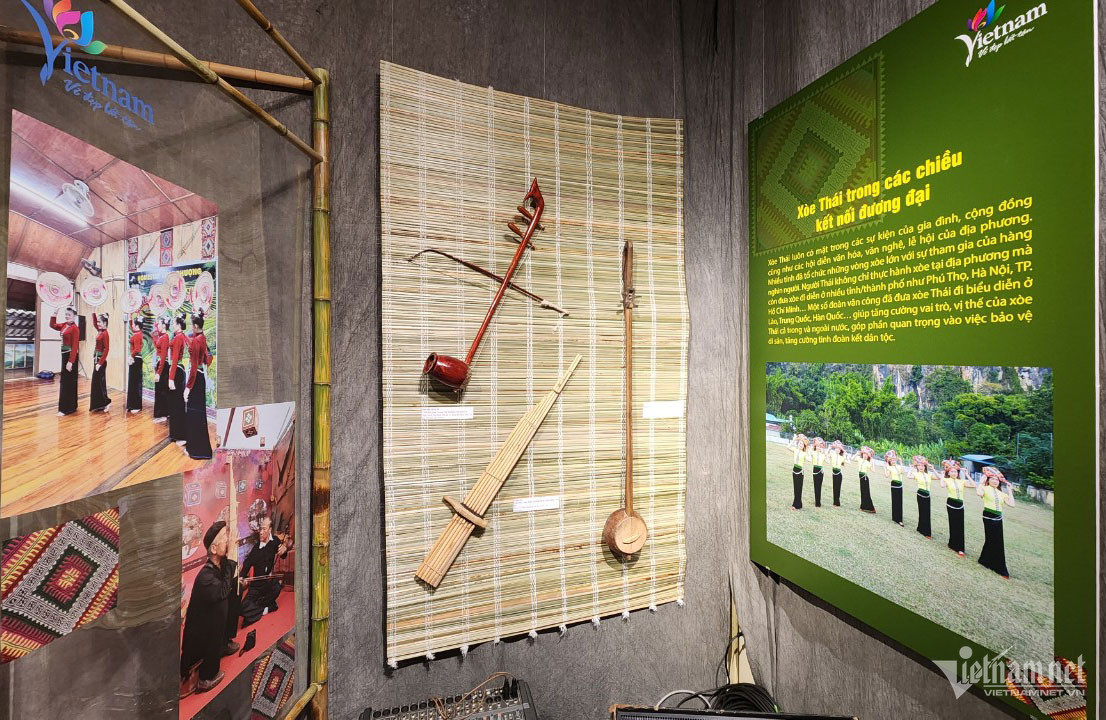
The program introducing two intangible cultural heritages of Vietnam, the Central Highlands Gong Cultural Space and Xoe Thai dance was recently held in Hanoi to convey to the public the story about how the two intangible cultural heritages of humanity recognized by UNESCO are being practiced by the local communities and the desire to preserve and promote these intangible cultural heritages through the voices of the artisans who are practicing the heritage.
At the same time, the program organizers expected to convey the message to tourists: Let's go to the Northwest and the Central Highlands to join the local community to preserve and promote the heritage. Every visitor who comes here will meet the communities directly, exchange and hear sharing from the community, and will understand, love and cherish the cultural heritage of ethnic minorities, thereby enhancing their understanding of the cultural heritage of ethnic minorities, thereby protecting and joinning hands with the community to promote the value of Vietnam's cultural heritage.
The Central Highlands gong cultural space spreads across the 5 provinces in the Central Highlands, including Kon Tum, Gia Lai, Dak Lak, Dak Nong, and Lam Dong. The subject of the heritage is more than ten ethnic groups living here for a long time such as Ba Na, Xo Dang, Gia-rai, E-de, M'nong, Ko Ho, Ma...
In 2005, the UNESCO recognized the Central Highlands Gong Cultural Space as a "Masterpiece of oral tradition and intangible heritage of humanity". In 2008, this heritage was transferred to the Representative List of Intangible Cultural Heritage of Humanity. Gongs are used the most in buffalo worshiping ceremonies and funerals. Today, gongs are also used in everyday cultural activities.
In 2021, UNESCO name the Xoe Thai dance on the Representative List of Intangible Cultural Heritage of Humanity.
Meanwhile, Xoe Thai dance is popular in the Northwest provinces such as Yen Bai, Lai Chau, Dien Bien, Son La... The subject of the art is the Thai ethnic group but Xoe Thai has been also practiced by many ethnic groups in the region.
In 2021, the UNESCO named Xoe Thai dance on the Representative List of Intangible Cultural Heritage of Humanity. Currently, this is one of the unique highlights that attracts tourists to the Northwest region to have authentic experiences about indigenous cultural heritage.

